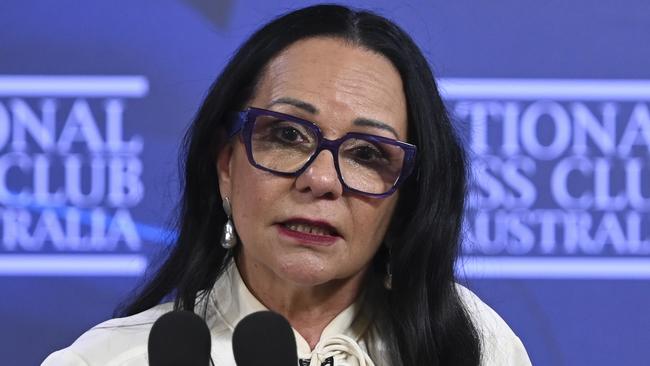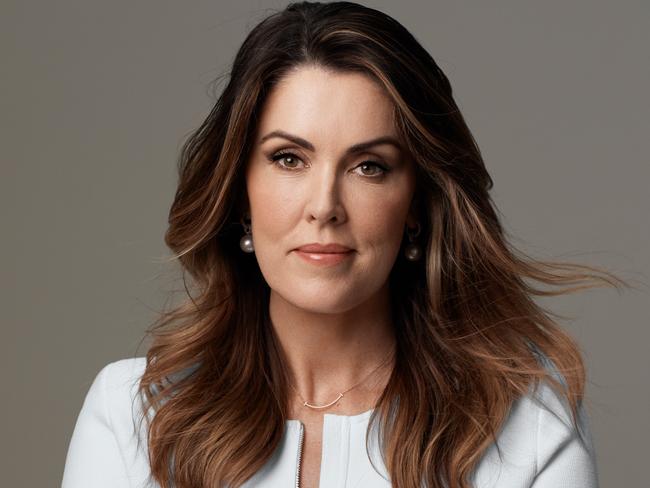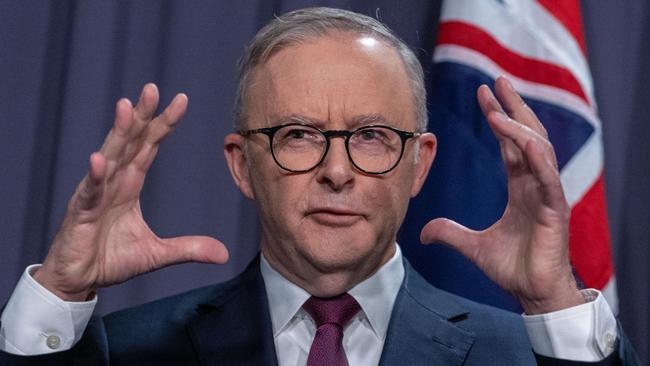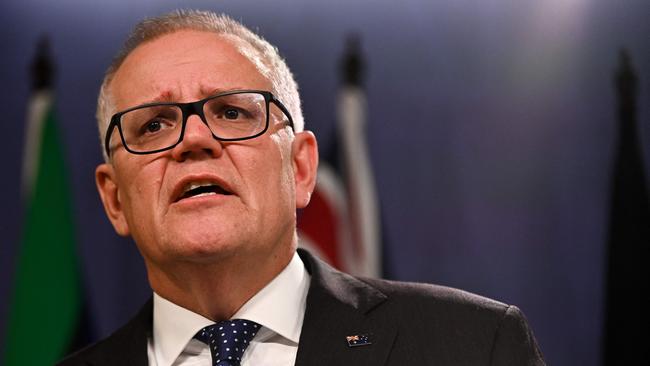Peta Credlin: Don’t get caught up in the vibe of the Voice
Indigenous Affairs Minister Linda Burney’s National Press Club speech was meant to reduce confusion and reset debate around the Voice, writes Peta Credlin. It did none of those things and that’s exactly how she wants it.
Opinion
Don't miss out on the headlines from Opinion. Followed categories will be added to My News.
NAIDOC Week is probably a good time to review where the Voice campaign is going, especially after the National Press Club speech during the week by Indigenous Affairs Minister Linda Burney.
The standing ovation she received was much more an indication of the media’s virtue-signalling on this issue than of the quality of what she said.
For something that was supposed to reset the debate and clear up confusion, it ended up raising as many questions as it answered.
Such as, how could the Voice, unlike the parliament, somehow take the long view of Indigenous issues, given that we still don’t know how it will be elected or selected and for what length of term?
And how could the Voice campaign be about uniting the country when Burney then proceeded to call Opposition Leader Peter Dutton a “bully-boy” and to accuse No campaigners of using “Trump-style” tactics?

Yes campaigners worked themselves into a frenzy of moral indignation this week over an Advance Australia ad depicting Wesfarmers boss Michael Chaney handing over a wad of money to Yes activist and communist sympathiser Thomas Mayo, while dandling on his knee his teal MP daughter, Kate.
This, even though Wesfarmers has indeed given $2m in shareholders’ money to one side of a highly contentious political contest.
Perhaps the ad was insensitive, but the Yes campaign can hardly get thin-skinned about the scorn that occasionally comes its way, given the vitriol routinely directed at No campaigners such as Senator Jacinta Price and Warren Mundine.
Who could forget Noel Pearson’s gaslighting of Price as somehow “punching down on blackfellas” when an Indigenous woman had the temerity not to follow the men folk?

With the news that BHP and Rio Tinto had joined Wesfarmers in making $2m donations to the Yes23 campaign – adding to multimillion-dollar donations from philanthropic foundations – what’s not now in any doubt is that the moneyed establishment is supporting the Voice.
Not because Big Business, Big Sport and Big Charity want to argue the case but because they’re keen to demonstrate moral superiority and curry favour with the government by backing the vibe that it’s disrespectful – verging on racist to refuse to give the Aboriginal activist class whatever it wants.
In her speech, Burney maintained that the coming referendum was about recognition – but that’s just designed to trick voters.
The referendum is all about the Voice, a body that will give under 4 per cent of people a special say over what happens for everyone.
She claimed, first, that the Voice would be entirely independent of government, but then maintained that it would deal with health, education, jobs and housing – because that’s what she would ask it to do.

Nowhere did she tell her audience, though, that while she can ask the Voice to do anything, that doesn’t mean they have to listen, because the Voice can readily ignore government and do whatever it likes if it’s enshrined in the Constitution.
Burney said that the Voice would be “chosen by local communities, for local communities” but also insisted that it would be “gender-balanced” and “include the views of young people”.
So, what is it? Elected, as the Prime Minister has said, or selected, as the government’s own Voice website says? See the confusion when, even now, we don’t know these basics?
What we do know is that it’s always been the plan to use the “soft sell” of the Voice to lock Indigenous co-governance into the Constitution and then unleash the real agenda of the Uluru Statement, a “treaty” (which means reparations, or taxpayer- funded compensation) and “truth” (which means rewriting Australia’s history as a story of shame).
However, the government hopes you don’t really understand any of this until the Voice referendum is safely out of the way.
It’s now claimed by Voice supporters that it’s what 80 per cent of Indigenous people want. Yet last month, the pro-Voice entity Passing the Message Stick cited “research” that “25 per cent (of Indigenous people) have said they’re a No in terms of where they are sitting in the campaign” and “over 45 per cent are saying they have heard very little or know nothing about the referendum”. In other words, 70 per cent of Indigenous people are No or they “don’t know”.
Make no mistake, the Yes campaign is in deep trouble. But if the weight of advertising can buy votes, it might still prevail.
That’s why every Australian who believes that the content of our character is what matters, and not the colour of our skin, needs to understand what’s really at stake here, and speak up to ensure Labor’s Voice is defeated.
Robodebt was flawed but welfare abuse still needs weeding out
As was inevitable, the Robodebt royal commission has been highly critical of the Morrison government.
The published parts of its report say that former PM Scott Morrison “allowed cabinet to be misled” over the legality of the scheme because “he did not make that obvious inquiry”.
The royal commissioner accused former minister Alan Tudge of an “abuse of power” because he supposedly went after welfare recipients in the media to distract attention from the scheme’s problems.
As well, she said that former minister Christian Porter “could not rationally have been satisfied of the legality of the scheme”; and that ex-minister Stuart Robert had gone “well beyond supporting government policy” in denying the scheme’s flaws.

Without having the royal commission’s sealed chapter “relating to the referral of individuals for civil action or criminal prosecution”, it’s hard to know just how serious these findings are as matters of legal, as opposed to political, guilt.
We’ve known for two years now that the scheme was, in a judge’s words, a “shameful chapter in public administration”.
Still, however sub-optimal and even dishonourable it might be, preferring not to know about some facts, and not wanting confirmation of one’s concerns, is hardly unknown in our public life; or indeed in people’s private lives either.
It wasn’t unreasonable of the former government to want to crack down on welfare abuse, given that we’re talking about around $4bn owed to the taxpayer.
What was wrong was using average half-yearly income to raise welfare debts against recipients, without further checking the fortnightly income on which eligibility is determined. “In many cases” Anthony Albanese said on Friday, its victims “had no debt to repay”.
The government’s mistake was using a floodlight rather than a searchlight to establish wrongdoing – and the fact that senior public servants apparently went along with this scheme shows how wrong it is always to defer to supposedly expert, supposedly independent, public service advice.
I just hope it doesn’t stop governments of the future ensuring that the money we pay people down on their luck is paid to those who really need it, and not those cunning enough to scam it.
WATCH PETA ON CREDLIN ON SKY NEWS, WEEKNIGHTS AT 6PM





